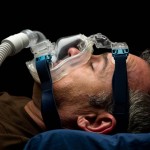BattleDiabetes – Vitamin A may help treat type 2 diabetes and prevent heart complications

Fat-soluble vitamin A, which is key to a healthy immune system and strong vision, may also help battle type 2 diabetes, according to a new study.

Fat-soluble vitamin A, which is key to a healthy immune system and strong vision, may also help battle type 2 diabetes, according to a new study.

The link between depression and mortality has often been studied in type 2 diabetes, but research of this in type 1 diabetes patients is rare, she noted.

LDL cholesterol wasn’t a good predictor of cardiovascular disease in type 1 diabetes, but the total cholesterol-to-HDL ratio appeared more reliable, an observational study showed

Combining two different medications could help patients with Type 1 diabetes at least partially regain the ability to produce their own insulin, a University of Florida study has shown.

The study, Randomized Controlled Trial of Breakfast Recommendations on Weight: A Multi-Site Effectiveness Trial, was a 16-week, 3-parallel-arm randomized control trial that was the first to look at the question of the weight-loss effects of skipping breakfast.

Investigators at the University of Cincinnati (UC) have found a therapy that reverses new onset Type 1 diabetes in mouse models and may advance efforts in combating the disease among humans. The study, led by William Ridgway, MD, was presented Saturday, June 14, 2014, at the American Diabetes Association’s 74th Scientific Sessions in San Francisco.

In a recent scientific publication, JDRF-funded researchers used a radiotracer or marker and PET (Positron Emission Tomography) scanning as a non-invasive technique to follow changes in how many active beta cells a person has. Dr. Olle Korsgren and his colleagues at the University of Uppsala in Sweden used the technique in a clinical study of […]

“Together with our prior studies that showed decades of routine fasting was associated with a lower risk of diabetes and coronary artery disease, this led us to think that fasting is most impactful for reducing the risk of diabetes and related metabolic problems.”

The discovery of sodium-glucose co-transporter 2 (SGLT2) inhibitors, with a novel mechanism independent of insulin secretion or sensitization, offered a new therapeutic approach for the management of type 2 diabetes mellitus.

Fifteen years after undergoing bariatric surgery, 30% of patients no longer had diabetes, but only 7% of patients who received usual care were in diabetes remission.

The study, Randomized Controlled Trial of Breakfast Recommendations on Weight: A Multi-Site Effectiveness Trial, was a 16-week, 3-parallel-arm randomized control trial that was the first to look at the question of the weight-loss effects of skipping breakfast.

Among diabetes patients receiving metformin, the addition of insulin compared with a sulfonylurea was associated with an increased risk of nonfatal cardiovascular outcomes and all-cause death

Research published in Diabetologia (the journal of the European Association for the Study of Diabetes) suggests that two large meals (breakfast and lunch), rather than six small meals with the same total calories, are better for controlling weight and blood sugar in people with type 2 diabetes.
For patients with diabetes and depressive symptoms, individual mindfulness-based cognitive therapy (MBCT) and individual cognitive behavior therapy (CBT) improve depressive symptoms, according to a study published online June 4 in Diabetes Care.

A study of more than 8,600 people suffering from sleep apnea suggests a possible increased risk for developing diabetes, Canadian researchers report. They noted that sleep apnea results in less oxygen reaching cells in the body, less sleep and an increased heart rate, all of which are associated with a biological link to diabetes.

Research from the American Heart Association’s Quality of Care and Outcomes Research Scientific Sessions 2014 found that about 10 percent of heart attack patients have undiagnosed diabetes, a condition that can raise the risk for cardiovascular events.

Women with diabetes were at 40% to 50% greater risk for developing and dying from coronary heart disease than diabetic men, and sex disparities in pharmacotherapy didn’t appear to explain the excess risk

A sensor which can be used to screen for diabetes in resource-poor settings has been developed by researchers and tested in diabetic patients, and will soon be field tested in sub-Saharan Africa.

The National Institute for Health (NIH) reports that people with diabetes that suffer from depression, are at a higher risk, in experiencing extreme symptoms from their diabetes.

Manav Batra, MD, of the University of Buffalo, said during a presentation, that “according to research, testosterone also increases in expression of mediators of signaling and reductions in factors that interfere.”